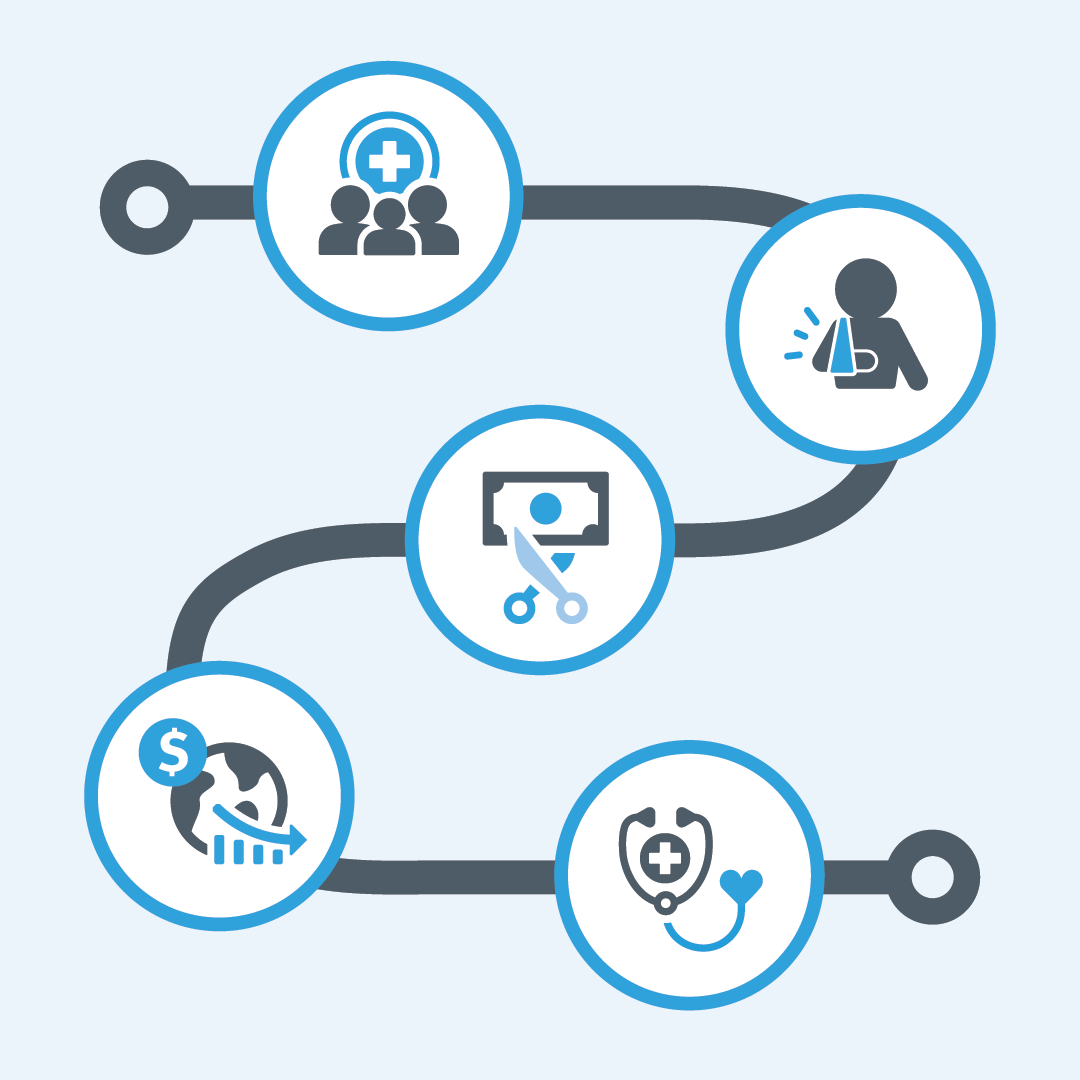
The Wrong Conclusions about ER Use from Study on Oregon’s Medicaid Lottery
By Dee Mahan,
10.24.2016
A new study about emergency room use in Oregon is fueling the debate about whether expanding Medicaid as made possible under the Affordable Care Act leads to high emergency room use. To understand what the study says—and does not say—about the impact of Medicaid expansion, it’s important to keep in mind its limitations and consider data from other recent studies.
The study isn’t based on a full Medicaid expansion, but a 2008 coverage lottery in Oregon. That shouldn’t be confused with data from real, full expansions. Several studies from states with full expansions have shown short-term or insignificant increases in emergency room (ER) use.
First, Oregon’s Medicaid lottery is not the same as a complete expansion
The new study, released last week, reported an increase in ER use among people getting Medicaid coverage through Oregon’s “Medicaid lottery.” The state launched the lottery program in 2008 and replaced the lottery with a full Medicaid expansion in 2014.
The study found that ER use increased among people with Medicaid and stayed high over a two-year period.
Before Medicaid naysayers start using this data to argue against Medicaid expansion based on fears of high ER use, it’s important to take a look at what’s happened in more comprehensive Medicaid expansions, including in Oregon.
If you do that, you’ll find a different story. Studies of full expansions have found changes in ER use to be temporary or insignificant.
Several studies of actual, complete coverage of low-income adults through Medicaid expansions—not just coverage of a subset picked through a lottery—show that extending coverage won’t permanently overwhelm the health care system.
In fact, a report by the Oregon Health Authority released this summer shows that rates of ER use by Medicaid enrollees have fallen since 2013, when the state launched a Coordinated Care Program in Medicaid, and have continued to fall since the full Medicaid expansion in 2014.
Why Oregon implemented a lottery for Medicaid before doing a full expansion
As background, in 2008 Oregon wanted to expand Medicaid to cover more adults. But that was before the ACA funded an expansion of Medicaid, and the state could only afford to cover a limited number of applicants. They initiated a lottery to randomly choose enrollees from the applicant pool.
The lottery’s random selection process has given researchers a chance to study the impact of getting Medicaid, comparing similarly situated adults who did and didn’t win health coverage in the lottery. That is an interesting study opportunity. However, Oregon’s Medicaid lottery is not the same as a complete Medicaid expansion, and those looking at the study results should keep that in mind.
The lottery did not cover all adults who were eligible for Medicaid, as an expansion would. It is unclear whether those who applied to the lottery were already in poor health and that’s why they applied. The effect of “winning” may have also skewed service use. Those are things we don’t know that could affect study outcomes.
Second, data from other Medicaid expansion states show a pattern of declining emergency department use
So, let’s take a look at what’s happened in some other states when they’ve expanded Medicaid fully, rather than when they’ve limited coverage only to select applicants through a lottery.
- A study of California’s early Medicaid expansion found an initial spike in hospital and ER use among individuals gaining Medicaid coverage. However, after a year, rates had stabilized and returned to normal levels.
- Data from Oregon shows that after the state’s full Medicaid expansion, rates of ER use are declining.
- And a study of ER use in 478 hospitals across 36 states, a mix of expansion and non-expansion states, found that expanding Medicaid did not significantly increase ER use.
An increase in emergency care is expected when insuring people who have been without health coverage
It wouldn’t be surprising if expanding coverage to a previously uninsured population did increase ER use for a period. When low-income people gain access to health coverage for the first time, there’s a temporary surge in demand for hospital and emergency care.
But what’s important is to connect people to the health system and to a physician if they present inappropriately to an ER. Programs that connect people to doctors are what have helped lower ER use in California and Oregon.
Several studies of actual, complete coverage of low-income adults through Medicaid expansions—not just coverage of a subset picked through a lottery—show that extending coverage won’t permanently overwhelm the health care system.
But what you do get by extending health coverage through Medicaid? A significant improvement in physical and financial health for millions of Americans.




